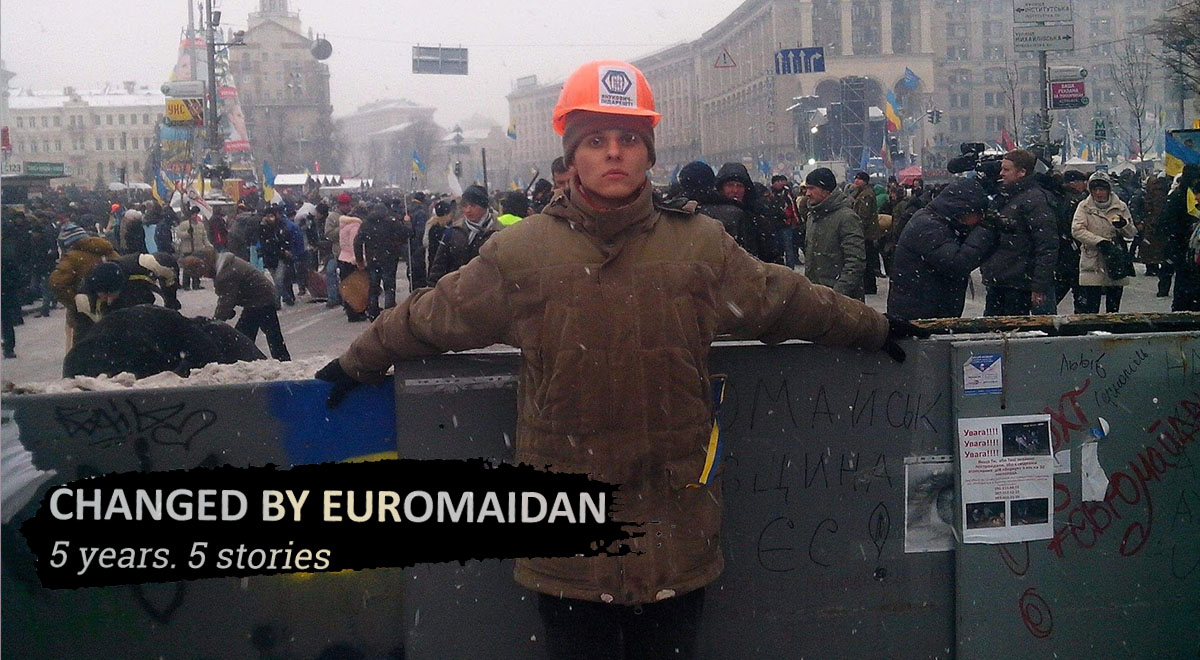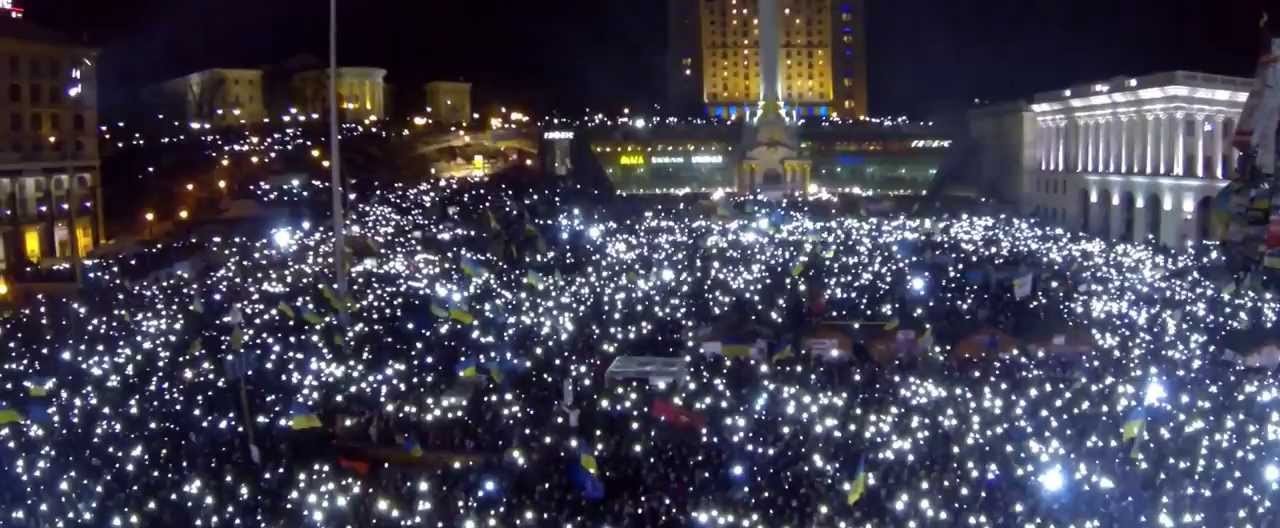- Roman Maselko: My promise to slain Euromaidan activists is to bring bad judges to justice;
- Larysa Artiugina: Ukraine’s unique volunteer movement most powerful weapon we have to win this war
- Oleksandra Dvoretska: We IDPs have a motivation – to return Crimea and Donbas
- Activist behind Novorossiya’s defeat in Kryvyi Rih: I am hit with five lawsuits for my civic stance
Before Euromaidan, Roman was a young man who organized music events. Having an intuitive nature, he joined the revolution, as he felt it could bring positive change to the country. Five years later he is a regular participant at different court hearings regarding crimes committed against Euromaidan activists. He goes there as one who has experienced the brutality of Ukraine’s law enforcement first-hand during the protest of students on the night of November 30 which was the first to get dispersed by the police. The scene of the police beating up a handful of students during the night galvanized Euromaidan’s protest potential and subsequently brought up to a million to the streets.
Despite five years having passed after the dreadful experience, he can describe every detail of what had happened to him then.
“On the night of November 29th [2013], it seemed that everyone was disappointed and at a loss as to what to do next. These doubts and inconsistencies made people leave the protest.”
That evening Roman went home, but later his intuition drove him back. As told by the activist, anxiety was in the air. Also, there were rumors that the police would attack.
“But we had been told so many times before that we had already stopped believing it.”
Roman remembers how a famous musician Oleh Sobchuk, the frontman of the SKAJ band, joined the protesters with a guitar. It gave Roman some feeling that everything was ok.
The activist made himself a tea. At that moment the Berkut special law enforcement unit struck. A few minutes later, the Berkut unit officers were kicking Roman as well.
“They were like machines. Just beating and beating us and did not let anyone out. They encircled us and made the circle smaller and smaller. In the end, I found myself on the platform under the Independence monument in the middle of the square. I fell down. Around eight people were standing on me. On the one hand, I was afraid to move to not make them fall down. On the other hand, I even could not move. I could not breathe. At first, I was very scared and then I accepted that these might be my last minutes.”
After some time the officers made a corridor, so people could get out of the circle.
“They were kicking with sticks everyone who was leaving. For me, everything was like in a fog. I don’t know why, but I was like invisible for them. They had not beaten me in the corridor.”
Roman went home on foot. On his way he met different people – some were also attacked, some managed to hide.
“At that time I realized how different people are.”
Further away from the Maidan Roman met a drunk man who was going home from a nightclub. They had a short chat.
“He asked me the weather I was going from Maidan and then said that it was all in vain and that we would not change anything.”
Coming back home, Roman was frustrated and slept for the whole of the following day. But upon waking up, he found out from the news that people had started to gather in another center square to support those who had been beaten. It gave the activist hope and returned his motivation.
Unfortunately, that was by no means the last attack by the police. Later Roman joined the AutoMaidan car protests. Once together with this movement, he went to the city of Cherkasy. That protest had also been violently dispersed by Berkut.
Roman can also describe this episode of his life in detail. He had not managed to escape from the law enforcement, so he was captured, interrogated and detained for about two and a half weeks.
“Later I found out that I was lucky that I could not run away from them. Because it turned out that those who did run away were captured by the “titushky” (rent-a-thug mobs) and brutally beaten.”
After the events, Roman tried to find the details of the case against him, but there were none.
“They just put me in jail because a prosecutor told them to do so.”
Five years later, Roman still attends court hearings regarding these cases as a victim. He says that four other victims of the cases are already dead. Two were killed later during the Maidan.
The activist had not supported the politicians who opposed the Yanukovych regime back in the days of the protests. Now that they are in power he is even more skeptical towards them. But he has never been disappointed in the Euromaidan revolution itself and considers his suffering during the protests a price for a better future.
“People learned how to mobilize, and how to be disappointed in politicians quickly. Before it was a long process which could have taken decades. Now we understand who is who much faster.”








